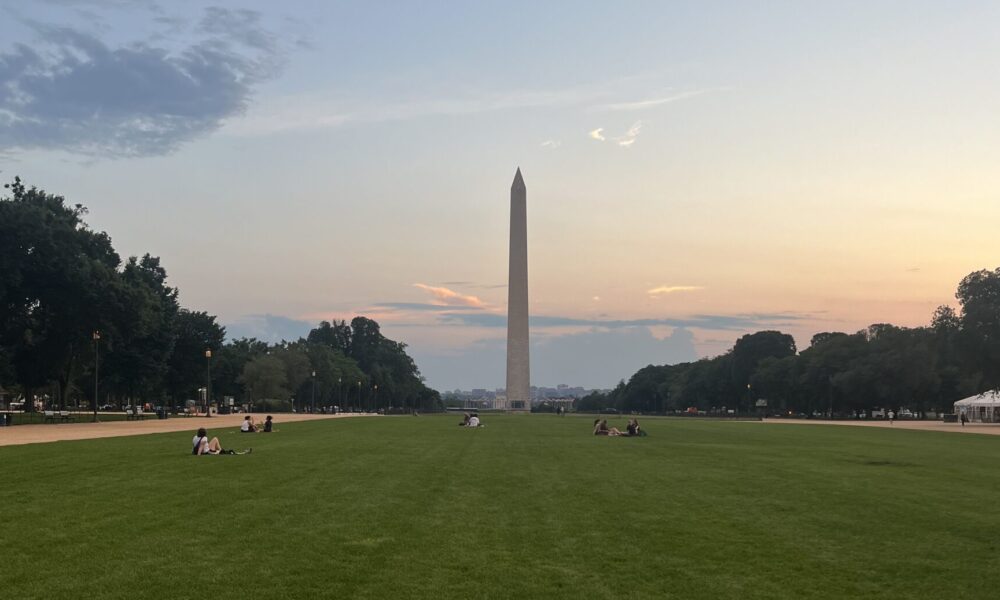For many of my Canadian peers, the phrase “51st state” earns an eye-roll, no doubt in response to U.S. President Trump’s ceaseless political and economic antagonism. Yet, growing up in Washington, DC, “51st state” was a rallying cry, a call for the enfranchisement of the city’s over 700,000 residents who are, at present, unrepresented in the federal legislature. How can the same two words represent forceful domination and aggression here in Canada, but liberation and freedom in DC? As it turns out, DC statehood wasn’t as mainstream of a political movement as I thought.
I grew up in Adams Morgan, a neighbourhood in the northwest corner of DC decorated with colourful townhouses, live music venues, bookstores, and a plethora of delicious international cuisine, all running along its famous 18th Street. Adams Morgan is known for its cultural vibrancy and artistic nature, making it—in my opinion, at least—the best place in the world to spend your childhood.
Since I can remember, Adams Morgan has been a bustling centre of political and community activity: Debates over protecting its original architecture from condo pop-ups; mobilization for the preservation of our beloved Adams Morgan Plaza; enthusiastic celebration of the neighbourhood’s history at the Adams Morgan Day festival; widespread mourning over the closure of classic spots like Columbia Station, a jazz club I was indoctrinated into loving by my father.
Yet, no community-based activity is more significant to residents of Adams Morgan—and DC, more generally—than the movement for statehood. Since the United States’ founding almost 250 years ago, Washington, DC has been relegated to the status of a federal district, meaning that the city, despite having a larger population than several states, is completely disenfranchised. We have no senators, only a single (non-voting, mind you) representative in the House, and a mere three seats in the Electoral College. Yet, DC pays more taxes per capita to the federal government than any state.
Our representation at the federal level is not the only political consequence of DC’s lack of statehood. Our local government operates under Home Rule, where residents are allowed to elect their Mayor, Councilmembers, and Advisory Neighborhood Commissioners, but Congress maintains ultimate power to overturn our laws, disapprove our budgets, and make judge appointments to our courts. As dismal as that already sounds, our right to self-governance is only expected to shrink under Trump, as just this February, Congress introduced a bill to repeal Home Rule entirely.
Voter suppression of Washingtonians is not simply a matter of regional discrimination, either; DC statehood is a racial justice issue. For over 50 years, the district was a majority-Black city, with Black people still today representing the largest racial demographic in the city. The disenfranchisement of what was, for quite some time, the United States’ most Black city by population percentage is not an accident. The anti-democratic tactics governing DC are a component of a larger system suppressing Black power in politics.
In a 2016 referendum, nearly 80 per cent of DC residents voted in favour of statehood, making it perhaps the most mainstream political movement in the city. Making DC the “51st state” was a bedtime civics story all my friends and I grew up hearing, something so intuitive that it was thought of as cliché to write about in your college applications. In fact, when initially coming up with ideas for this Off the Board piece, I dismissed this topic for being far too overdone.
Yet, as I have begun to realize throughout my time at McGill, most of my peers—including my fellow international students from the U.S.—lack any knowledge about the DC statehood cause. For many, the phrase “51st state” holds an entirely different meaning, having been co-opted into a broader vocabulary to describe Trump’s political aggression towards Canada. In the process, DC’s fight for democratic rights has been erased from the conversation.
At a time as politically tumultuous as today, it is crucial that those who are able to vote prioritize civic engagement do so, not just on their own behalves, but on behalf of the hundreds of thousands of residents in DC whose voices are sidelined by an unjust, archaic, and racist democratic precedent.









